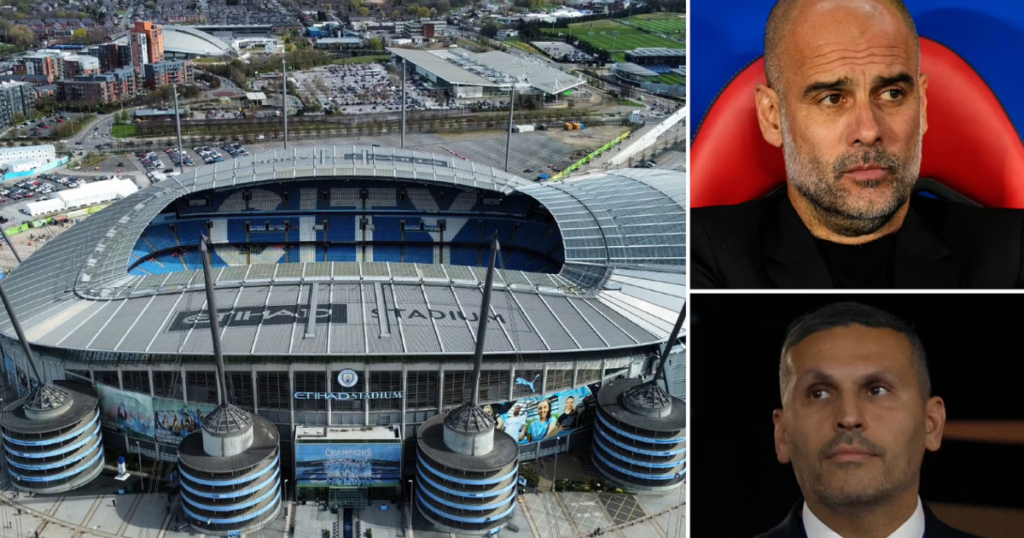Manchester City has been implicated in a scandalous accusation following the leak of a UEFA report, which alleges that the club received a substantial £30 million payment from an undisclosed individual in the United Arab Emirates. The report, dated 2020 and previously unpublished, has recently come to light, uncovering that the two payments of £15 million each in 2012 and 2013 were intended to serve as compensation for funds that were originally expected to be provided by one of Manchester City’s major sponsors. The revelation of this report provides valuable insight into the details surrounding these controversial payments.
According to the regulations set forth by the Premier League and UEFA, club owners have restrictions on the amount of equity funding they can inject into a club, while there are no limits on sponsorship funding. However, the UEFA report reveals that the payments, initially believed to be from Etisalat, the UAE’s majority state-owned telecommunications company, were, in fact, “disguised equity funding.” The report alleges that these funds originated from the Abu Dhabi United Group (ADUG), the investment group led by Sheikh Mansour bin Zayed Al Nahyan, the vice-president of Abu Dhabi.
During a disciplinary hearing conducted by UEFA, Manchester City’s lawyer identified the individual responsible for the payments as ‘Jaber Mohamed’. The report describes Mohamed as someone involved in providing financial and brokering services to commercial entities in the UAE. This revelation highlights the potential involvement of individuals closely associated with financial activities in facilitating these transactions.
The report raises a significant question that remains unanswered in Manchester City’s submission and evidence: why would either Etisalat or ADUG require the assistance of a broker to fulfill the financial obligations associated with the Etisalat sponsorship?
In addition to the financial controversy, Manchester City has also faced charges of non-cooperation with the investigation and failure to provide required documents over a period spanning five seasons, from 2018/19 to 2022/23. According to The Times, the report from the adjudicatory committee was obtained by the creators of a documentary film titled ‘Britain’s Biggest Football Scandal?’, which explores Manchester City’s financial charges. The film has been released on YouTube by Sunrise Media. The filmmakers have strongly emphasized that they have not received funding from any Middle East state or external agency, dismissing suggestions of geopolitical motives behind the production.
The film in question, released on YouTube by Sunrise Media, has not provided any credits aside from the mention of Sunrise, which was registered in the British Virgin Islands on June 9. A London-based law firm has been engaged to seek comments from Manchester City, the Court of Arbitration for Sport (CAS), and UEFA. The authenticity of the UEFA report, mentioned in The Times, has been independently verified.
According to the report, during the hearing, Manchester City’s leading counsel stated in response to the adjudicatory committee’s inquiries that the payments were made by Jaber Mohamed. However, investigators have yet to verify the identity of Mohamed, and their attempts to present him as a witness during the CAS hearing, which resulted in the overturning of City’s two-year ban from the Champions League in 2020, were unsuccessful. The initial ban from the Champions League was imposed on City following a UEFA investigation triggered by a report from Der Spiegel, a German publication, alleging that significant amounts of sponsorship money from City’s Abu Dhabi sponsors were directly paid to the club by ADUG.
The report from the adjudicatory committee concludes that arrangements were made to attribute payments from ADUG to the sponsorship obligations of Etisalat, thus disguising the true purpose of equity funding. These arrangements were carried out through the £30 million payments made by Jaber Mohamed.
Furthermore, the report highlights that the club’s management was fully aware that the payments made by Jaber Mohamed were intended as equity funding and not as payments for genuine sponsorship liabilities. Consequently, the management cannot legitimately treat the liabilities claimed under Etisalat 1A and Etisalat 2 as sponsorship revenue owed by Etisalat for services provided by the club.
The report also highlights that Manchester City’s audited annual financial statements submitted to the Football Association contained an overstatement of the club’s actual sponsorship revenue. This overstatement occurred by including the full amount that Etisalat was supposed to pay for the years ending on May 31, 2012, and 2013. These recent revelations raise questions about the potential sanctions that Manchester City may face if found guilty.
